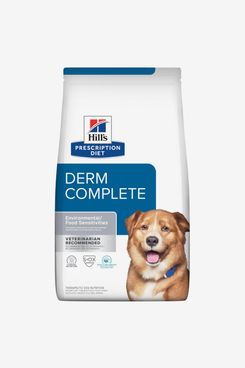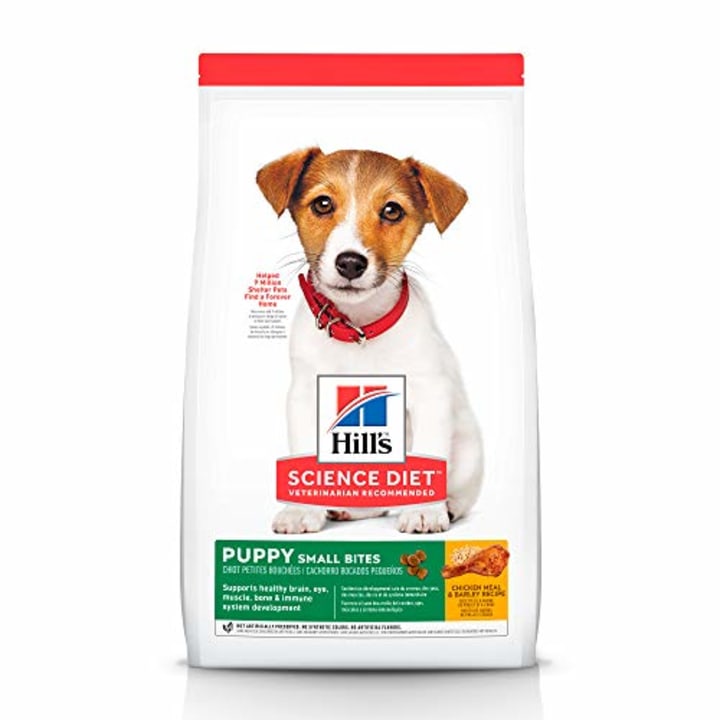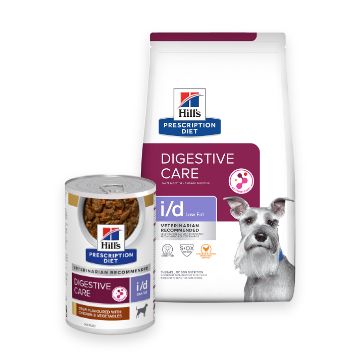Physical Address
304 North Cardinal St.
Dorchester Center, MA 02124
Physical Address
304 North Cardinal St.
Dorchester Center, MA 02124

Finding the right dog food can be overwhelming. Your dog deserves the best nutrition.
Vet recommended dog food ensures quality and safety for your furry friend. Veterinarians know what’s best for pets. They understand the nutritional needs of dogs at different life stages. Vet recommended dog food often contains high-quality ingredients and meets strict standards.
These foods support overall health, from shiny coats to strong bones. Choosing a vet recommended option can give peace of mind, knowing your dog is getting proper nourishment. This blog will explore the benefits of vet recommended dog food. We’ll discuss why these options are trusted by professionals and loved by pets. Let’s dive in and find the best for your loyal companion!

Credit: nymag.com
Choosing the right food for your dog is crucial. Vet recommended dog food offers numerous benefits. It ensures your furry friend gets the best nutrition and care.
Vet recommended dog food contains high-quality ingredients. These foods are rich in essential nutrients. They offer balanced vitamins, minerals, and proteins. Quality ingredients support your dog’s overall health. They help maintain strong muscles, healthy skin, and a shiny coat.
Read More: Dog Food Without Seed Oils
Feeding your dog vet recommended food can lead to noticeable health improvements. It can boost their immune system. A strong immune system helps fight off diseases. It also supports better digestion and reduces allergies. Many dogs experience more energy and vitality. Their joints and bones become stronger. This ensures they stay active and playful for longer.

Credit: www.nbcnews.com
Choosing the best dog food is vital for your pet’s health. Vets recommend specific foods based on various factors. These considerations ensure your dog receives the proper nutrition.
Different breeds have unique dietary requirements. Large breeds may need food that supports joint health. Small breeds often need calorie-dense food due to their fast metabolism. Understanding breed-specific needs helps in selecting the right food.
Puppies require different nutrients compared to adult dogs. Senior dogs have unique dietary needs as well. The size of your dog also matters. Smaller dogs need smaller kibble. Larger dogs benefit from food that supports their overall health.
Choosing the best food for your dog is vital for their health. Vets often recommend specific brands due to their quality and nutritional value. In this section, we will look at some top vet recommended dog food brands.
Brand A is known for its high-quality ingredients. This brand focuses on natural, wholesome foods. Here are some key points:
Vets trust Brand A for its commitment to quality. Many dog owners report healthier coats and more energy in their pets.
Read More: Best Dry Food Dogs Will Love
Brand B offers a range of options for different dog needs. Whether you have a puppy or a senior dog, Brand B has you covered. Here are some highlights:
Many vets recommend Brand B for its scientific approach to dog nutrition. This brand ensures that each formula supports your dog’s health.
When it comes to choosing the right dog food, special dietary requirements play a crucial role. Dogs, like humans, can have unique needs based on their health conditions. Vet recommended dog food often addresses these specific dietary requirements. Below, we explore some common special dietary needs for dogs.
Many dogs suffer from food allergies and sensitivities. These can cause discomfort and health issues. Common allergens include beef, dairy, and wheat. Vet recommended dog foods often avoid these ingredients. They use alternative protein sources like lamb or fish. Hypoallergenic formulas are also available. These foods can help reduce allergic reactions. Always consult your vet for the best options for your dog.
Maintaining a healthy weight is important for your dog’s well-being. Overweight dogs face many health risks. These include joint problems and heart disease. Vet recommended dog foods for weight management are lower in calories. They often have higher fiber content to promote satiety. This helps your dog feel full while consuming fewer calories. Regular exercise, combined with a proper diet, keeps your dog healthy and active.
Choosing the right dog food is essential for your pet’s health. Vet recommended dog food often contains high-quality ingredients. Knowing what to look for on the label helps ensure your dog gets the best nutrition. Here are some key ingredients to consider.
Proteins and fats are vital for your dog’s health. Proteins support muscle growth and repair. Look for meat sources like chicken, beef, or fish. Fats provide energy and help with nutrient absorption. Healthy fat sources include fish oil and chicken fat. Avoid foods with vague ingredients like “meat by-products” or “animal fat.” These can be low-quality and less nutritious.
Vitamins and minerals are crucial for overall well-being. They support the immune system, bone health, and energy levels. Key vitamins to look for include Vitamin A, Vitamin D, and Vitamin E. Essential minerals include calcium, phosphorus, and potassium. Check the label for these nutrients to ensure a balanced diet. A balanced diet keeps your dog healthy and happy.
Choosing the right dog food ensures your pet’s health and happiness. Knowing what ingredients to avoid helps you make better choices. Many dog foods contain harmful substances that can affect your dog’s well-being. Let’s explore the ingredients to avoid in vet recommended dog food.
Artificial additives are common in many dog foods. They include synthetic colors, flavors, and preservatives. These chemicals can cause health issues like allergies and digestive problems.
Fillers and by-products are often used to bulk up dog food. They have little to no nutritional value. Avoiding these ensures your dog gets the nutrients they need.
| Ingredient | Reason to Avoid |
|---|---|
| Artificial Colors | Cause hyperactivity and allergies |
| Artificial Flavors | Mask poor-quality ingredients |
| Artificial Preservatives | Linked to cancer and other health issues |
| Corn and Wheat | Cheap fillers, cause allergies |
| Meat By-Products | Low-quality, less nutrition |
| Soy | Can cause digestive issues and allergies |
Choosing the right food for your dog can be challenging. Many dog owners debate between homemade and commercial food. Both have unique benefits and drawbacks. Understanding these can help you make an informed decision.
Homemade food allows you to control ingredients. You can avoid preservatives and additives. Fresh ingredients can improve your dog’s health. But homemade food takes time to prepare. You need to ensure it meets your dog’s nutritional needs.
Commercial food is convenient. It is designed to meet nutritional standards. You can choose from many brands and formulas. But some commercial foods contain fillers and artificial ingredients. It’s important to read labels carefully.
Always consult a vet before changing your dog’s diet. Vets can help you choose the best food for your dog’s age, size, and health needs. They can recommend specific brands or homemade recipes. A vet’s advice ensures your dog gets balanced nutrition.

Credit: www.petsmart.com
Switching your dog’s food can be tricky. It’s important to make the transition smoothly. Here are some useful tips to help your dog adjust to vet recommended dog food.
A gradual transition is crucial for your dog’s digestive health. Follow these steps to change your dog’s food over a week:
| Days | Old Food | New Food |
|---|---|---|
| 1-2 | 75% | 25% |
| 3-4 | 50% | 50% |
| 5-6 | 25% | 75% |
| 7 | 0% | 100% |
This method minimizes digestive issues. Your dog will get used to the new food slowly.
Monitoring your dog’s health during the switch is essential. Look for these signs:
If you notice any problems, contact your vet immediately. They can guide you on the best action. Always keep an eye on your dog’s overall well-being.
The best vet recommended dog food is tailored to your dog’s needs. Consult your vet.
Vets recommend specific dog foods for balanced nutrition and to address health issues.
Check the ingredients list, nutritional value, and consult your vet for advice.
Some vets recommend grain-free food for dogs with allergies or sensitivities. Ask your vet.
Look for real meat, vegetables, and whole grains. Avoid fillers and artificial additives.
Feed your dog according to the vet’s guidelines, usually twice a day.
Yes, vets recommend special puppy food for growth and development. Check with your vet.
Yes, it can help with allergies. Hypoallergenic options are available. Consult your vet.
Yes, senior dogs need specific nutrients. Vets recommend foods designed for aging pets.
Choosing the right dog food is essential for your pet’s health. Vet recommended options ensure balanced nutrition and quality ingredients. Always consider your dog’s specific needs and preferences. Consult your vet for personalized advice. Investing in good food leads to a happy, healthy dog.
Remember, a healthy diet contributes to a long, joyful life for your furry friend. Prioritize their nutrition, and you’ll see the benefits in their energy and vitality. Happy feeding!